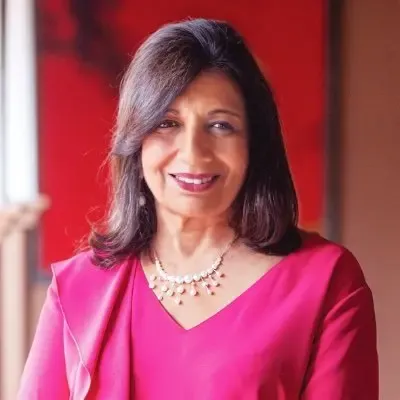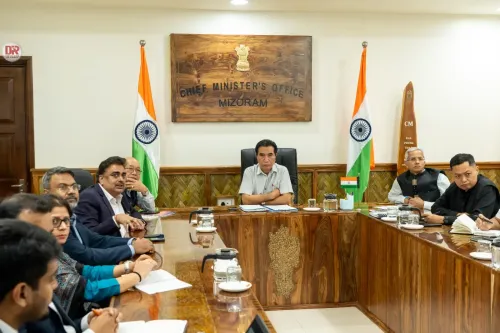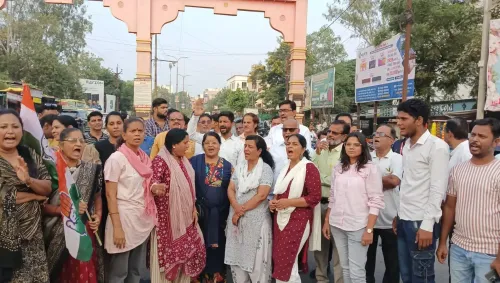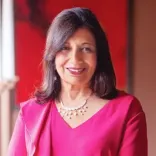Should Any Nation Weaponize Critical Minerals, Technology, or Supply Chains?
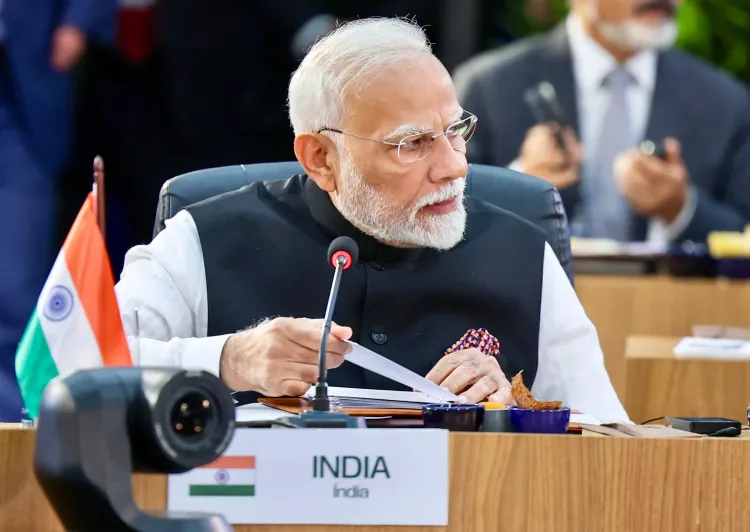
Synopsis
Key Takeaways
- No country should weaponize critical resources for self-interest.
- Cooperation in critical minerals and technology is essential.
- Focus on demand-driven decision-making in project financing.
- Need for responsible AI governance that prioritizes equity.
- BRICS must lead by example to meet the expectations of the Global South.
Rio de Janeiro, July 7 (NationPress) Prime Minister Narendra Modi emphasized that no nation should exploit critical minerals, technology, or supply chains for its own gain at the expense of others worldwide. He stated, “To enhance collaboration in critical minerals and technology, we must ensure that their supply chains are resilient and secure. It's crucial that these resources are not used solely for national interests or as weapons.” This remark was made during an outreach session at the BRICS Summit.
While not explicitly naming any country, his statement was a pointed critique of China, which has halted the export of specialty fertilizers to India and imposed restrictions on rare earth material exports to various nations.
Addressing another contentious issue with Beijing, PM Modi asserted that when the BRICS New Development Bank approves projects, the emphasis should be on demand-based decision-making, ensuring long-term financial viability, and maintaining a robust credit rating.
This approach stands in stark contrast to China's trend of financing projects that neglect the priorities of the host nations, often resulting in unsustainable debts that allow for political and economic coercion.
To bolster BRICS’ credibility in advocating for reforms in multilateral institutions, PM Modi stressed the need for the group to enhance its own operational frameworks. He noted that economic cooperation within BRICS has been steadily advancing.
His remarks came during the Outreach Session on Strengthening Multilateralism, Economic-Financial Affairs, and Artificial Intelligence, which included participation from BRICS members, partners, and invitees like United Nations Secretary-General Antonio Guterres.
Furthermore, PM Modi highlighted the necessity for BRICS to advance in Responsible AI, ensuring governance that prioritizes both addressing concerns and fostering innovation. “In India, we view AI as a means to enhance human values and capabilities,” he remarked, noting India’s commitment to the principle of ‘AI for All’ and its active use of AI across various sectors.
Guterres added that AI should not be an exclusive domain but should benefit all, especially the developing nations that need a substantial voice in global AI governance. He emphasized that effective and equitable governance of AI requires addressing deeper structural inequalities within the global system, including the Security Council.
As the world transitions to a multipolar structure, it necessitates multilateral governance with institutions that are adapted to current realities, particularly concerning the Security Council and international financial systems.
PM Modi expressed that the Global South harbors significant expectations from BRICS, and to meet these, BRICS must exemplify strong leadership. “India is fully dedicated to collaborating with all partners to achieve our common objectives,” he declared.
As an illustration of BRICS’ potential to fulfill the aspirations of the Global South, he referenced the BRICS Agricultural Research Platform established in India, which serves as a medium for sharing best practices in agricultural biotechnology, precision farming, and climate adaptation. He also suggested creating a BRICS Science and Research Repository to further benefit Global South countries.


